Thiruvalluvar university 1st year tamil question paper

As a student getting ready for the Thiruvalluvar University 1st Year Tamil Question Paper, I know how stressful it can be. Juggling studies, assignments, and life can feel overwhelming. But don’t worry! With a good plan and the right resources, we can prepare effectively for the exam. In this guide, I’ll share simple tips and strategies to help us study for Tamil.
Understanding the Curriculum
The first thing we need to do is understand what our course covers. Knowing the topics we need to study can make our preparation easier.
Syllabus Overview
The Tamil syllabus includes different subjects that we need to learn. Here’s a breakdown of the main topics:
- Classical Tamil Literature: We will read works by famous Tamil poets like Ilango Adigal, who wrote Silappadikaram, and Thiruvalluvar, the author of Thirukkural. It’s important to know their writing styles and the messages they share.
- Modern Tamil Literature: We will also look at modern Tamil writers and their works. Understanding how these authors write about today’s issues can help us connect with the language better.
- Language Skills: We need to practice our Tamil writing, grammar, and vocabulary. This means we should review grammar rules and learn how to build sentences correctly.
- Cultural Context: Learning about the culture and history behind Tamil literature is very important. It helps us understand the stories and poems we read more deeply.
Textbooks and Study Materials
Next, we should gather our textbooks. These are usually listed in our syllabus or given to us by the university. Our textbooks will be our main resources for studying, so we must have them handy.
Key Areas of Study
To do well in the Thiruvalluvar University 1st Year Tamil Question Paper, focusing on certain key areas can really help. Here are some important topics to study:
1. Classical Tamil Literature
Studying classical Tamil literature helps us appreciate the history of the Tamil language. Here are some important works and poets to focus on:
- Thirukkural: This is one of the most important texts in Tamil literature. It has 1,330 couplets that talk about ethics, politics, and love. Knowing the main themes and messages of these couplets will be very useful for our exam.
- Silappadikaram: Written by Ilango Adigal, this epic tells the story of Kannagi and her husband Kovalan. We should look at its main characters and the social issues it raises.
- Sangam Literature: This is a collection of ancient Tamil poems that reflect the culture and values of old Tamil society. Learning about the key poets from this time can give us a better understanding of Tamil literature.
2. Modern Tamil Literature
Reading modern Tamil literature helps us see how the language is used today. It can also help us connect with current themes and problems in society. Here are some tips for studying modern literature:
- Read Widely: Look for short stories, poems, and novels by contemporary Tamil writers. Pay attention to the language they use and the themes they explore.
- Discuss with Friends: Talking about what we read with classmates can help us understand the material better. We can share our thoughts and learn from each other’s perspectives.
- Make Notes: While reading, jot down important points, themes, and any questions we might have. This will make it easier to review later.
Exam Preparation Tips
Now that we know what to study, let’s look at some tips for preparing for the Thiruvalluvar University 1st Year Tamil Question Paper.
1. Create a Study Schedule
Making a study schedule is a great way to stay organized. We can set aside specific times each day for studying Tamil. This will help us cover all the topics without feeling rushed.
2. Practice Past Papers
Looking at previous years’ question papers can give us an idea of what to expect. We can practice answering these questions to improve our writing skills and time management.
3. Join Study Groups
Joining a study group with friends can be very helpful. We can motivate each other, share resources, and discuss difficult topics. Sometimes, explaining things to others can help us understand better ourselves.
4. Ask for Help
If we struggle with a particular topic, it’s important to ask for help. This could be from a teacher, tutor, or even classmates. There’s no shame in seeking assistance when we need it.
5. Stay Healthy
Taking care of our health is just as important as studying. We should eat well, exercise, and get enough sleep. This will help our minds stay sharp and ready to learn.
Also read: MTH 165 LPU Question Paper Download
Common Challenges
While preparing for the Tamil exam, we might face some challenges. Here are a few common ones and how to deal with them:
1. Procrastination
It’s easy to put off studying until the last minute. To overcome this, we should set small, manageable goals for each study session. This can make studying feel less overwhelming.
2. Stress and Anxiety
Feeling stressed about exams is normal. To handle stress, we can try relaxation techniques like deep breathing or meditation. Taking breaks during study sessions can also help refresh our minds.
3. Difficult Topics
Some topics might be harder to grasp than others. If we encounter a challenging area, it’s important not to get discouraged. Breaking it down into smaller parts and reviewing them step by step can make it easier.
Conclusion
Preparing for the Thiruvalluvar University 1st Year Tamil Question Paper might seem challenging, but with the right approach and mindset, we can do well. By understanding the curriculum, focusing on key areas, and using effective study strategies, we can build our knowledge and confidence. Remember, we’re not alone in this journey—support from classmates and teachers can make a big difference. Let’s stay motivated and work hard; our efforts will pay off in the end!



